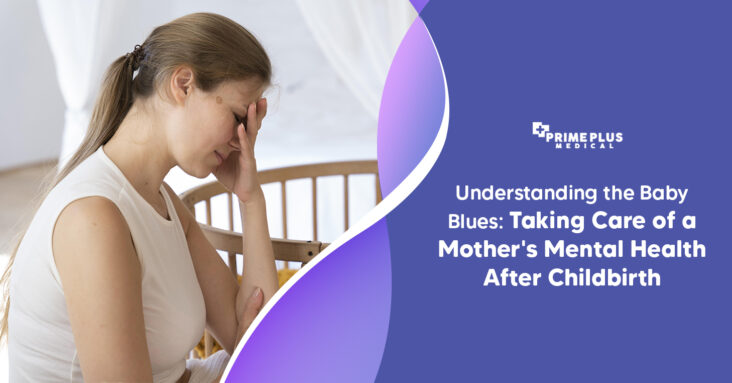Welcoming a new life into the world is undoubtedly a joyous occasion, but the postpartum period can be incredibly challenging for new mothers. Baby blues, a common phenomenon experienced by many women after childbirth, can lead to emotional upheaval and affect a mother’s mental health.
In this article, we will explore the definition of baby blues, how it manifests, and how to provide support and care for a new mother during this period.
Understanding the baby blues and postnatal depression
Baby blues, also known as postpartum blues, refer to a temporary emotional state many women experience after giving birth. According to the Cleveland Clinic (US), baby blues affect between 50% and 75% of mothers after giving birth.
Typically occurring within the first two weeks since childbirth, baby blues can cause new mothers to feel overwhelmed, anxious, teary, moody, or even angry. This emotional rollercoaster is mainly related to hormonal fluctuations, exhaustion from childbirth, and the significant life transition into motherhood. These feelings usually ease within a few weeks, and most women do not need specific treatment for baby blues.
On the other hand, postnatal depression, also known as postpartum depression (PPD), is a more severe and persistent condition that affects some women after childbirth. According to the National Health Service (UK), postpartum depression affects more than 1 in every 10 women within a year of giving birth.
PPD can occur within the first year after giving birth. This condition is characterized by intense and prolonged feelings of sadness, hopelessness, worthlessness, inability to enjoy activities, difficulty bonding with the baby, and withdrawal from family and friends.
Recognizing the signs of baby blues
As mentioned above, common symptoms of baby blues include sudden mood swings, sadness, irritability, fatigue, difficulty sleeping, and a sense of inadequacy in caring for the newborn. While it is considered a natural response to the life changes after giving birth, symptoms of baby blues should not be ignored. Leaving the symptoms unaddressed may lead to more severe postpartum mood disorders.
Creating a supportive environment for new mothers experiencing baby blues
During the postpartum period, a nurturing and supportive environment can significantly impact a mother’s mental well-being. Partners, family, and friends can play a vital role in providing emotional support, helping with household tasks, and encouraging open communication. Simple gestures like helping with chores, preparing meals, and offering a listening ear can make a big difference to a new mother.
Encouraging rest and self-care
Sleep deprivation can intensify the emotional strain experienced by new mothers. Encouraging new mothers to get enough rest is essential for their physical and mental recovery. Partners can take turns caring for the baby at night, allowing the mother to get a good night’s sleep. Additionally, promoting self-care activities, such as taking short walks, practicing relaxation techniques, or making some time for her hobbies, can help improve a mother’s overall well-being.
Seeking professional help to cope with baby blues
While baby blues typically subside within a few weeks, some mothers may find their emotional distress persisting or intensifying. In such cases, it is essential to seek professional support, as it is possible that the new mother is suffering from postpartum depression. Healthcare providers can offer counseling, therapy, or medication.
Encourage social connections
Postpartum mothers can often feel isolated, especially if they are homebound, caring for their newborns. Encouraging social connections can help fight loneliness and provide a sense of community. Participating in mother-baby groups or seeking online support forums can create a platform for sharing experiences and receiving advice from other new mothers, fostering a sense of belonging.
If you believe you might be experiencing baby blues or postpartum depression, please make sure that you take the first step towards treatment by consulting your GP as soon as possible. Our English-speaking team of excellent doctors at Prime Plus Medical in Canggu is ready to assist you 24/7.

